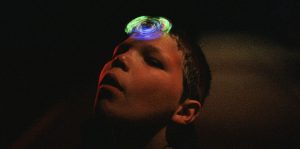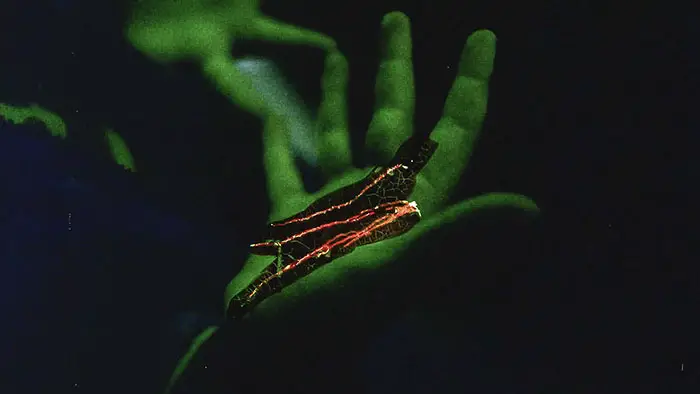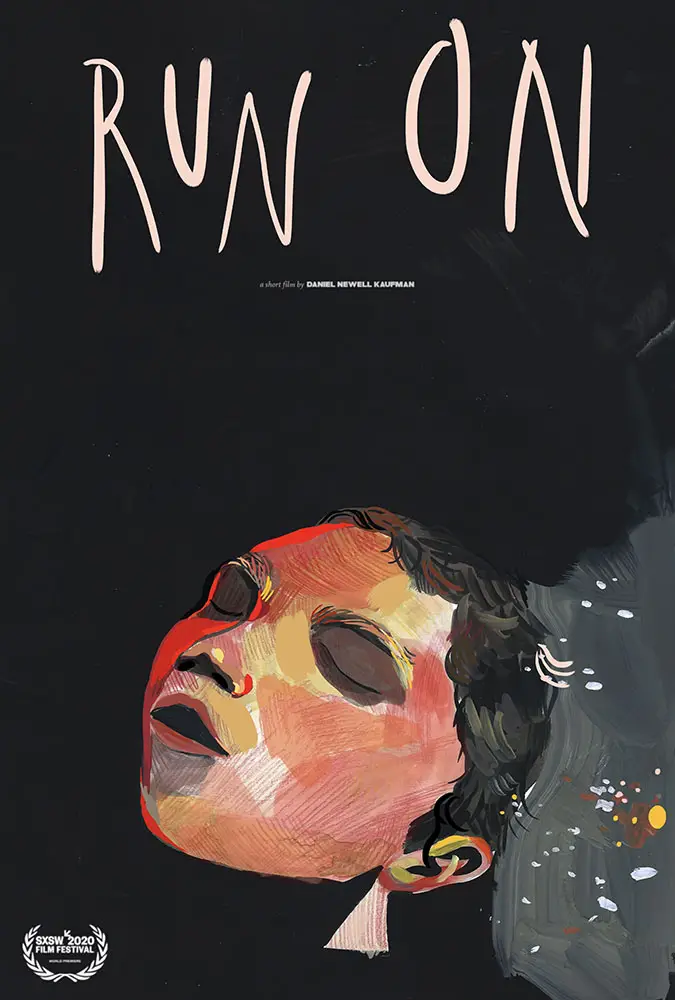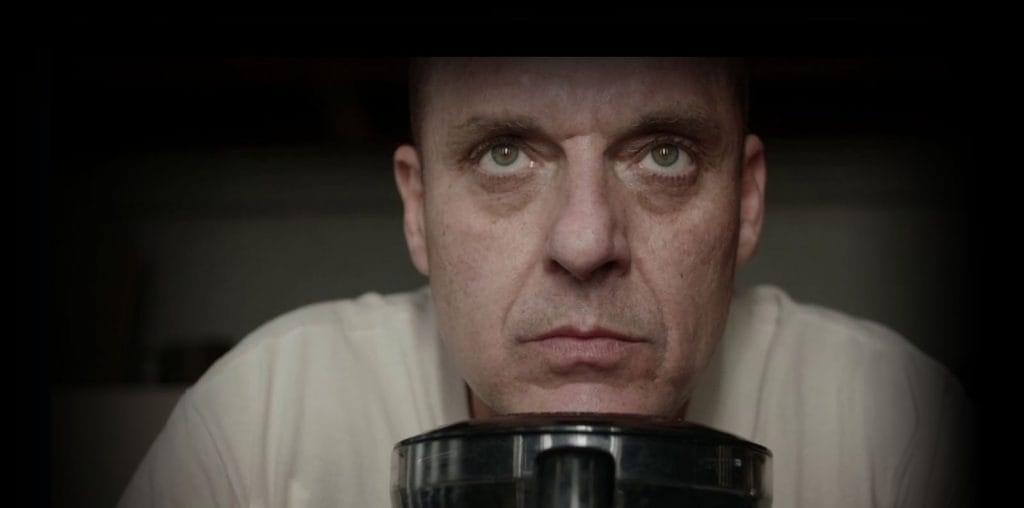
SXSW 2020 FILM FESTIVAL REVIEW! There is a multitude of films and shows that showcase a character who runs away and leaves an unpleasant reality behind. Usually, in the realm in which the character exists, it’s a decision made out of fear, circumstance, or desire. In the puzzling case of Daniel Newell Kaufman’s Runon, the circumstances of why a woman and a young child are apprehensively waiting to leave town are fascinatingly unclear.
Runon opens to a young boy playing with an illuminated fidget spinner. The boy is collected and blissfully absentminded, staring in awe at the refulgent toy. It isn’t long until a woman (Erin Markey) forcefully takes Luke (Luke Visagie) by the arm and brings him into a squalid bus station. As the unnamed woman pulls Luke away from his bubble of elation, the atmosphere becomes all the more panicky, and Adam Newport-Berra’s hypnotic cinematography gets more engagingly frantic.
The woman and Luke are now waiting for their bus to somewhere. But where are they going? And why is the woman incredibly flustered? Amplifying the situation’s dubiety is Luke’s relationship with this woman. At first glance, it must be his mom, right? But a subtle piece of dialogue instantly repudiates that observation (“You’re just like your mom, expensive taste,” the woman flippantly says to Luke). For the entirety of the 12-minute runtime, Luke never mutters a word, yet his actions speak volumes. Luke wanders the bus station out of hunger, monotony, and unbridled intrigue. And the gliding camera tags along.

“…the single-take is a pertinent method to capture the young boy’s journey through the seedy bus station.”
As a reserved Luke gets progressively more restless and confused, Adam Newport-Berra’s cinematography strikingly imitates Luke’s emotions. The single-take technique is being used more and more these days. Given the fabric of this story and all of the emotions it entails, the single-take is a pertinent method to capture the young boy’s journey through the seedy bus station. Like a child’s imagination, the free-flowing camerawork imagines no limits.
In Runon, Daniel Newell Kaufman lets the camera off a leash, allows the sound to cut in and out, and only ever permits snippets of dialogue to get through. Through his understandably restive demeanor, young actor Luke Visagie makes us care about his character’s cryptic predicament. Luke’s ingrained silence underscores his bewilderment of what he’s going through. Performance artist Erin Markey deftly plays the energetic woman who acts like Luke’s mom in some instances, but then she goes on to gently tease him and make a brusque joke about prison, which isn’t very motherly, to say the least.
Runon has one mystery on top of another mystery. Who is this woman? What are they running from, or what are they running to? Yet, these mysteries will continue to be mysteries, predominantly because the film is from the perspective of a child with a faulty comprehension of what’s going on.
Most of the dialogue is difficult to hear, but one line is repeatedly emphasized by the young woman, who says these seven words to a downhearted Luke: “It’s raining on all of our faces.” Thematically, that piece of dialogue gives viewers the greatest hint regarding why any of us would ever contemplate running away from something. When the fear of drowning becomes too much to bear, we yearn about running away and starting anew. Daniel Newell Kaufman’s Runon is an arresting short film that’s compellingly ambiguous and tension-fueled. You go through the experience of watching the film with an undiluted curiosity, and that curiosity lingers long after the credits roll.
Runon screened at the 2020 SXSW Film Festival.

"…Luke wanders the bus station out of hunger, monotony, and unbridled intrigue. "

